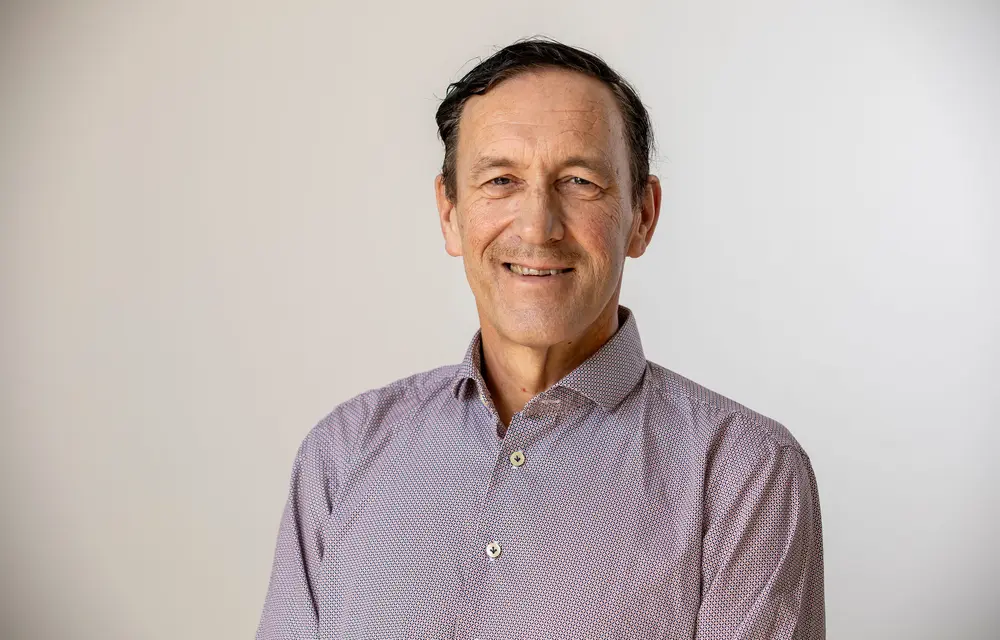Tereki's story
Tereki was looking after his mokopuna one morning, when he suddenly felt a numbing sensation on the left side of his body.

There was no right or wrong side for Tereki to get out of bed on the morning of his stroke.
Tereki had the day off. He had three of his four mokopuna staying with him and he was looking forward to spending time with them. Either way, his well-meaning plans for the day were about to turn to custard.
Tereki’s left side was feeling funny.
“I felt a numbing sensation. Something's happening.’ And then I thought, ‘Am I having a stroke?’”
Tereki is a trained clinical psychologist.
“I knew something about the brain, which is not helpful when you have a stroke, to be honest, because you kind of don't want to know!”
Tereki wondered how he was going to get out of bed.
The little one, Cale, was still sound asleep next to his granddad.
“Anyway, I started yelling out to the two older ones, Lennox and Mikiah, and got no response. Cale didn't even wake up. I thought, okay, if I ring one of them, they always have their phones and they're going to answer their phone.”
Tereki grabbed his phone and rang Lennox, the oldest of his two teenage grandsons.
Sure enough, Lennox answered.
“I told him to come to Papa's room.”
Lennox tried to get his granddad up off the bed, but Tereki fell to the ground.
Tereki says hindsight is a great thing when it comes to knowing who to call for help when experiencing a stroke (111), but he wasn’t thinking straight. He asked Lennox to Google Healthline and call them.
“He was like, ‘Oh, something's wrong with my papa.’ And they were like, ‘Oh, well what's happened?’ And so, I could hear them, so I was kind of telling him what to say.”
Healthline asked him to stay on the line as they called 111 for help. Eventually, an ambulance would arrive.
At the hospital Tereki couldn’t believe it.
“Mine was a tiny little brain bleed. And I remember seeing it on the scan and thinking, oh my gosh, it is so small. But that effect it had on me.”
It was thought high blood pressure may have been the cause of his stroke.
Tereki would spend five weeks in hospital in total. He was transferred from Waitakere Hospital to Auckland City Hospital where he would spend the majority of his time relearning, amongst other things, to walk again.
“I’m considered to be a young stroke survivor and young is defined as under 65 years, so you end up being referred there.”
Tereki’s recovery has been a slow road. Happening during COVID, the disruption severely impacted upon his rehabilitation time. While Tereki seldom walks with a cane now he suffers from thalamic pain syndrome.
“It's kind of a nerve pain. You can't mute the pain with general painkillers. They don't work so they use a drug used for epilepsy. It helps to mask the pain a little bit. But essentially, it never goes away.”
One of the things Tereki used to love doing was waka ama racing before his stroke. Fortunately, he’s now back on his waka again.
“I can't feel much on the left side, it's harder to do changes on side to side with the paddle because it's all mostly about feeling the paddle. It's a bit easier to sit in the back and steer. But I love it. I love being back on the water.”
Tereki is a survivor. He hasn’t written off his dream to surf the big waves on a waka in Hawaii one day. It’s still on his bucket list.
He tries not to sweat the small stuff anymore.
His advice to other survivors?
“I think try not to dwell on it. I think that's something that's really easy to do. You can get into this head space of just dwelling on your stroke and the effects of it."
"Just keep going. Small steps. Because in most cases, things do get better. Even though you might not see the light at the end of the tunnel, so to speak, it does get better.”
Life is different for Tereki but he still tries to get out of the right side of the bed every morning.